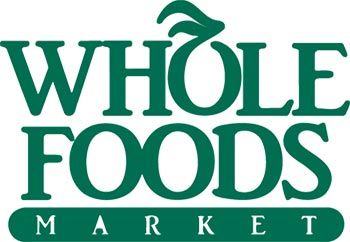Top Class Actions’s website and social media posts use affiliate links. If you make a purchase using such links, we may receive a commission, but it will not result in any additional charges to you. Please review our Affiliate Link Disclosure for more information.

According to the class action lawsuit, Whole Foods uses a 5-Step Animal Welfare Rating System in their store advertising to promote that they have high standards for the meat they sell by sourcing meat from suppliers who more ethically raise and treat their animals. Under this 5-Step program, Whole Foods reportedly rates each of their meat products on a 1 through 5 scale that shows how much the company has gone above and beyond in securing a sustainable, ethical meat source.
While the verbiage varied slightly among advertisements, one advertisement reads as follows:
- Step 1: No cages, no crates, no crowding
- Step 2: Enriched environment
- Step 3: Enhanced outside access
- Step 4: Pasture centered
- Step 5: Animal centered, no physical alterations
According to PETA’s animal welfare class action lawsuit, this rating system is equal to or at most slightly better than common industry standards. For example, chickens not being raised in cages is part of the industry standard. However, this statement combined with the other statements in the 5-Step rating system allegedly misleads consumers into thinking that Whole Foods treats animals better than their competition, an assertion that PETA does not believe to be true.
The 5-Star Animal Welfare Rating System is based on an organization called the Global Animal Partnership (GAP) that Whole Foods initially funded, according to the animal welfare class action lawsuit. Under the rating system, Whole Foods must have all of its meat products satisfy Step 1 as the minimum company standard. The company refers to their meat products as coming from suppliers with “a clear departure from conventional agricultural practices.”
Under GAP, the organization states, suppliers are only required to audited every 15 months. The audit process itself is lax, according to PETA’s class action lawsuit. Most violations are reported as minor, and can be violated numerous times without consequences. PETA states, “Only if the non-conformance remains after a third audit will the supplier lose its GAP certification. So a supplier will not lose certification for a ‘minor’ non-conformance for a full 3 years and 9 months after the non-conformance was first identified.”
Along with the purported premium meat sourcing and animal treatment, Whole Foods allegedly charges a premium for the meat they sell. According to recent polls and market research, consumers are willing to pay more for meat that comes from companies that treat animals ethically, and they are willing to pay the price. PETA alleges the practices of Whole Foods in overinflating the quality of their suppliers’ meat by their claims and resultant high prices are misleading and represent false advertising.
Williams, on behalf of the Class she seeks to represent, says she would not have bought the meat and would not have paid a premium had she known the true nature of the meat she was purchasing over the last six years.
PETA and Williams bring forth three counts in the animal welfare class action lawsuit against Whole Foods. The claims allege violations of the California Unfair Competition Law, the Consumer Legal Remedies Act and the False Advertising Law.
In addition to seeking Class certification, the plaintiffs request a judgment that the Defendant’s actions were unlawful, that they cease their unfair practices, and reimburse Class Members for the meat products they purchased, as well as reimburse for the cost of litigation and anything deemed fair by the court.
Plaintiffs are represented by Elaine T. Byszewski, Christopher R. Pitoun and Steve W. Berman of Hagens, Berman, Sobel & Shapiro LLP.
The Whole Foods Animal Welfare Class Action Lawsuit is People for the Ethical Treatment of Animals Inc. and Leah Williams v. Whole Foods Market Inc., et al., Case No. 5:15-cv-04301, in the U.S. District Court for the Northern District of California.
ATTORNEY ADVERTISING
Top Class Actions is a Proud Member of the American Bar Association
LEGAL INFORMATION IS NOT LEGAL ADVICE
Top Class Actions Legal Statement
©2008 – 2024 Top Class Actions® LLC
Various Trademarks held by their respective owners
This website is not intended for viewing or usage by European Union citizens.














